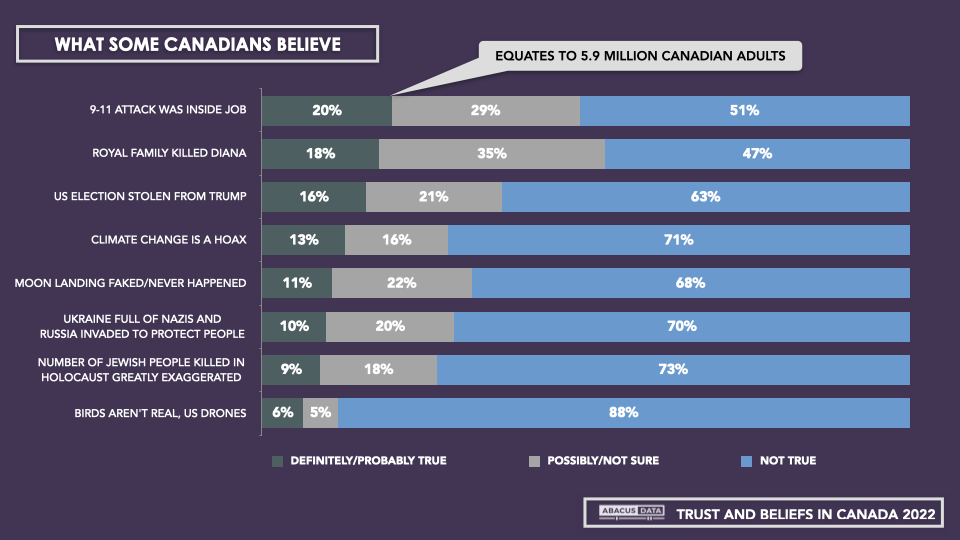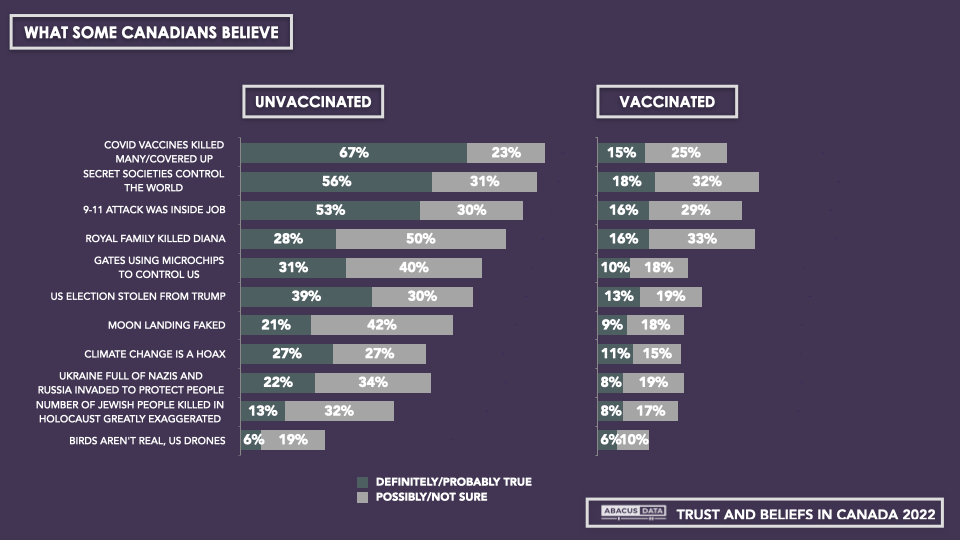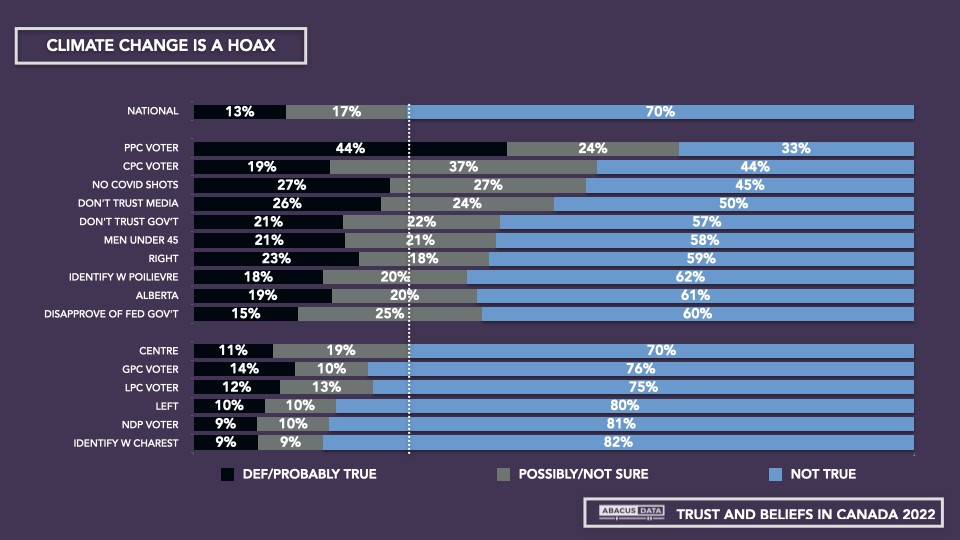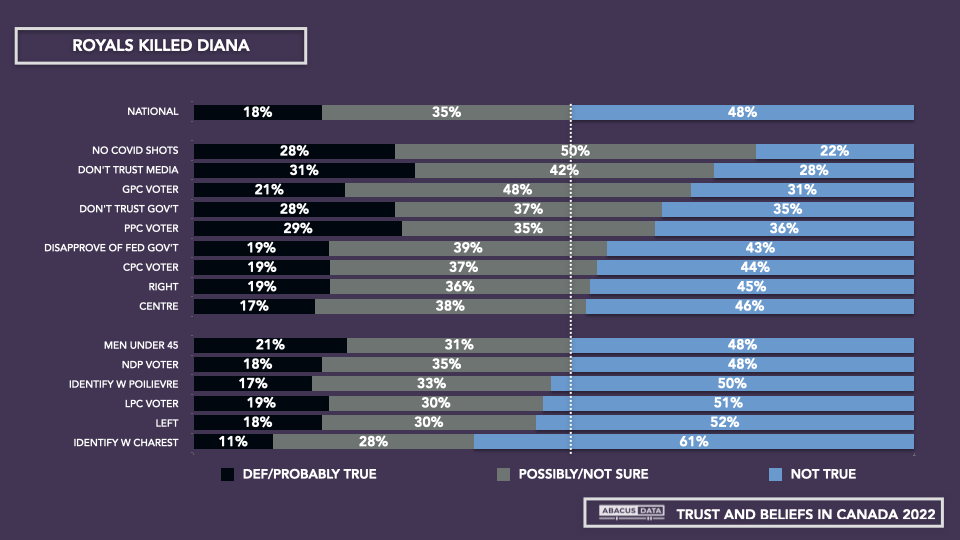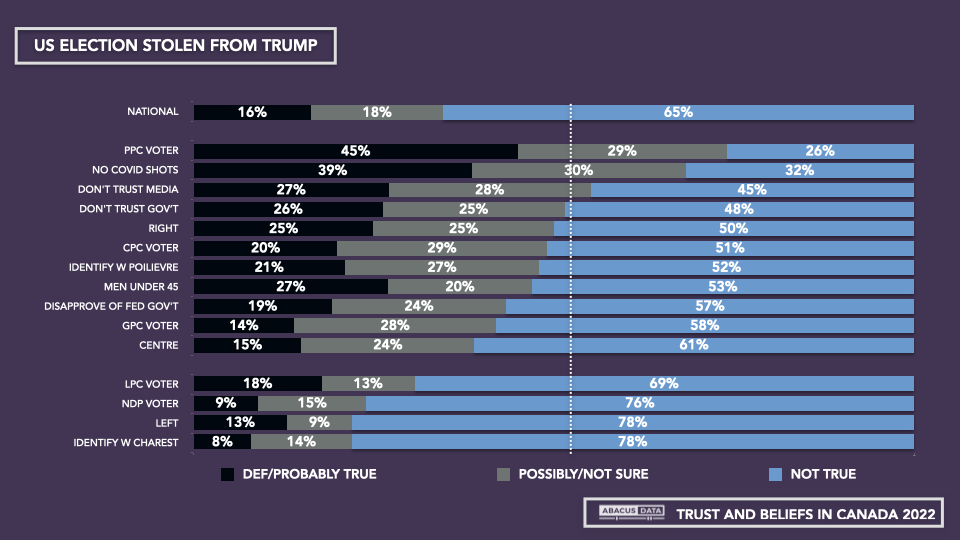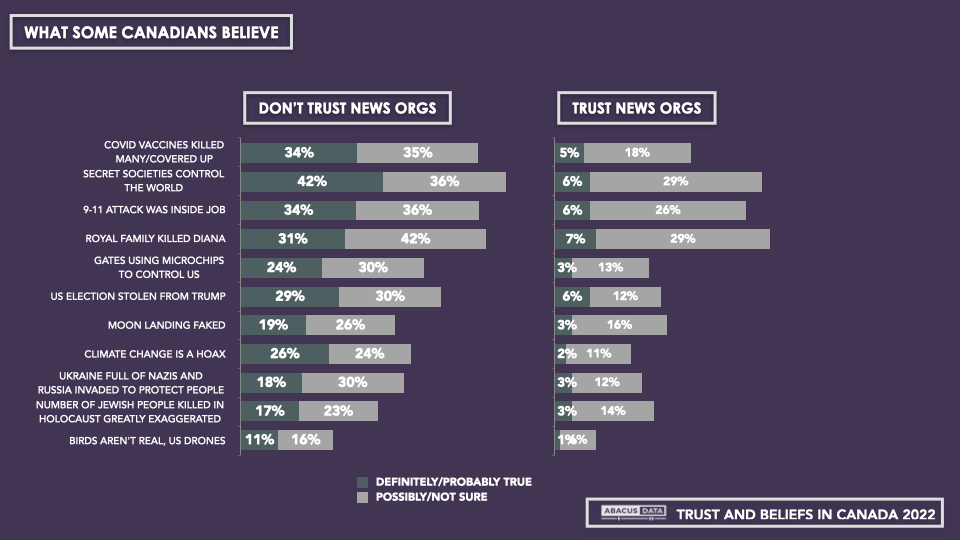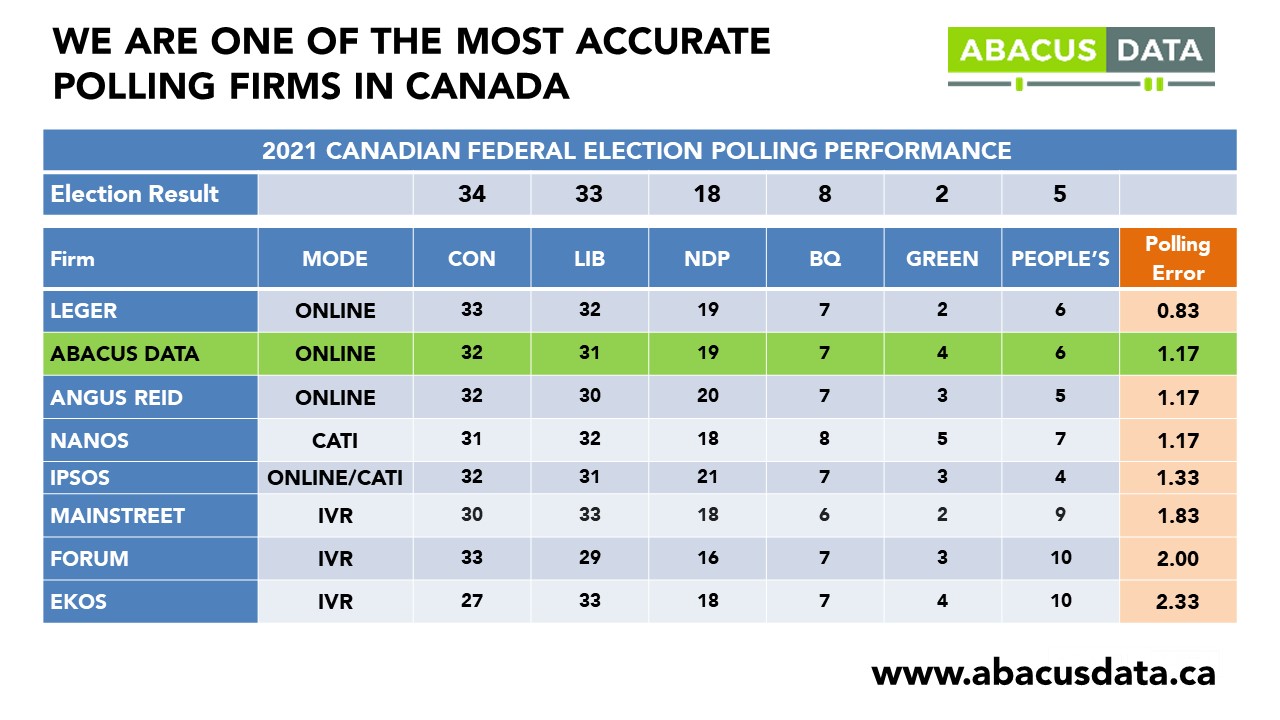Millions of Canadians Believe US Election Was Stolen From Trump
We recently completed nationwide surveying among 1500 Canadians. The focus was the levels of trust people have in institutional sources of information, and belief in different theories that indicate a lack of trust in broadly accepted facts. This is the fourth in a series of releases based on our findings.
As we noted in an earlier release, almost half of the population expresses limited trust in news organizations and official government accounts of events, and we see a clear relationship between institutional mistrust and belief in various conspiracy theories.
- One in five (20%) think it is definitely or probably true that the “9-11 attack was an inside job”
- 18% think it is definitely or probably true that the “Royal Family killed Princess Diana”. Another 35% seem to feel it is plausible.
- Almost 5 million Canadian adults (16%) think it’s definitely or probably true that “The US election was stolen from Donald Trump”. Another 29% think it’s possible or aren’t sure.
- 13% (or 3.8 million) think “Climate change is a hoax”. Another 16% think it’s possible or aren’t sure.
- 11% (or 3.2 million) believe it is definitely or probably true that “the moon landing was faked and never happened.” Another 22% think it is possibly true or aren’t sure either way.
An examination of demographic and other variables that correlate with these beliefs revealed:
- Belief in these theories is higher among supporters of the People’s Party, those who have not taken any Covid19 shots, those who think media and official government accounts of events can’t be trusted.
- Those who feel Pierre Poilievre is the Conservative leadership candidate closest to their values and ideas are more likely to believe these theories, when compared to those more aligned with Jean Charest.
- Those who haven’t taken any Covid shots, are far more likely to believe in most conspiracy theories compared to those who have been vaccinated.
- Among those who feel “official government accounts of events can’t be trusted” (which is 52% of the adult population), 84% also believe that “much of the information we receive from news organizations is false”.
- Among those who ‘believe much of the information we receive from news organizations is false” (which is 44% of the adult population) 71% also believe that “official government accounts of events can’t be trusted”. The proportion of the adult population that expresses mistrust of both media and government accounts is 37%, or 7 million adults.
- Those who believe “much of the information we receive from news organizations is false” are many times more likely to believe these conspiracy theories
THE UPSHOT
Our research is revealing that in many cases, belief in conspiracy theories is more likely a product of a generally mistrustful world view, rather than specific evidence related to any specific theory. It is strongly linked to mistrust of news organizations, and of governments.
Those who harbour this mistrust are more persuaded that secret societies are controlling events in the world, inclined reject climate science, to resist Covid vaccination – and more. What this illustrates is how challenging it will be for society to agree on public policy measures in the future, if rising mistrust in institutions and evidence are left unchecked.
Those in politics and news organizations can see in this data that the question of trust in institutional narrative is corrosive for each of them – they have a common threat from mistrust and a common interest in combatting the rise of mistrust, and it’s fellow traveller, the conspiracy theory.
METHODOLOGY
The survey was conducted with 1500 Canadian adults from May 20 to 24, 2022. A random sample of panelists were invited to complete the survey from a set of partner panels based on the Lucid exchange platform. These partners are typically double opt-in survey panels, blended to manage out potential skews in the data from a single source.
The margin of error for a comparable probability-based random sample of the same size is +/- 2.53%, 19 times out of 20.
The data were weighted according to census data to ensure that the sample matched Canada’s population according to age, gender, educational attainment, and region. Totals may not add up to 100 due to rounding.
This survey was paid for by Abacus Data Inc.
Abacus Data follows the CRIC Public Opinion Research Standards and Disclosure Requirements that can be found here: https://canadianresearchinsightscouncil.ca/standards/
ABOUT ABACUS DATA
We are the only research and strategy firm that helps organizations respond to the disruptive risks and opportunities in a world where demographics and technology are changing more quickly than ever.
We are an innovative, fast-growing public opinion and marketing research consultancy. We use the latest technology, sound science, and deep experience to generate top-flight research-based advice to our clients. We offer global research capacity with a strong focus on customer service, attention to detail, and exceptional value.
We were one of the most accurate pollsters conducting research during the 2021 Canadian election following up on our outstanding record in 2019.
Contact us with any questions.
Find out more about how we can help your organization by downloading our corporate profile and service offering.
